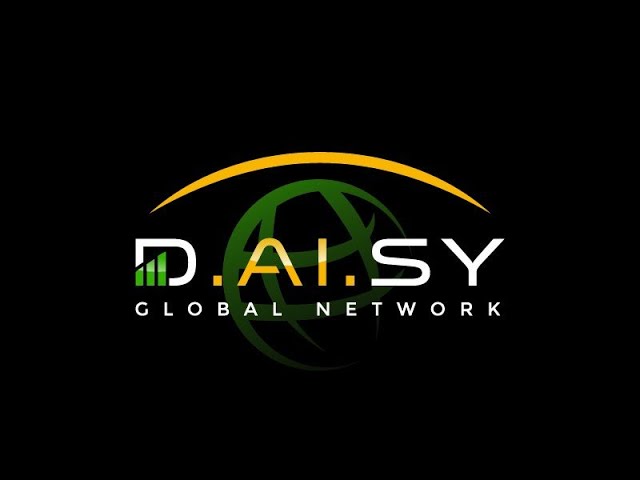Decentralized crowdfunding platforms have emerged as a disruptive force in the fundraising landscape, offering innovative solutions to traditional crowdfunding challenges. By leveraging blockchain technology and smart contracts, these platforms provide a transparent, secure, and efficient way for individuals and organizations to raise funds for their projects. In this blog, we'll explore the trends and insights driving the rise of decentralized crowdfunding platforms, and how they are reshaping the fundraising landscape.
Democratizing Access to Capital
One of the key benefits of decentralized crowdfunding platforms is their ability to democratize access to capital, enabling individuals and organizations from diverse backgrounds to raise funds for their projects. Unlike traditional fundraising methods that often require extensive networking and access to capital markets, decentralized crowdfunding platforms allow anyone with an internet connection to create and promote fundraising campaigns.
This democratization of access to capital empowers entrepreneurs, artists, developers, and community organizers to bypass traditional gatekeepers and directly engage with potential supporters and investors. Whether launching a new business venture, funding a creative project, or supporting a social cause, decentralized platforms such as DAISY Global provide a level playing field where merit and innovation are rewarded, regardless of geographical location or socioeconomic status.
Eliminating Intermediaries
Decentralized crowdfunding platforms operate on blockchain technology, which enables peer-to-peer transactions without the need for intermediaries such as banks or payment processors. By eliminating intermediaries, decentralized platforms such as DAISY Global reduce transaction costs, streamline the fundraising process, and increase transparency and trust between campaign creators and backers.
Smart contracts, self-executing contracts with the terms of the agreement directly written into code, automate the fundraising process and ensure that funds are securely transferred to campaign creators once predetermined conditions are met. This trustless and transparent system minimizes the risk of fraud, mismanagement, and disputes, fostering greater confidence and participation in decentralized crowdfunding campaigns.
Tokenization of Assets
A significant trend driving the rise of decentralized crowdfunding platforms is the tokenization of assets, which involves representing real-world assets as digital tokens on the blockchain. Tokenization enables fractional ownership of assets, allowing investors to purchase and trade tokens representing shares of real estate, artwork, intellectual property, or other tangible and intangible assets.
Decentralized platforms like DAISY Global facilitate the issuance and trading of security tokens, which represent ownership stakes in underlying assets and comply with relevant securities regulations. These platforms provide a global marketplace where investors can discover and invest in a diverse range of asset-backed tokens, unlocking liquidity and investment opportunities that were previously inaccessible to retail investors.
Community Governance and Participation
Decentralized crowdfunding platforms often incorporate community governance mechanisms that empower token holders to participate in decision-making processes and shape the direction of the platform. Through mechanisms such as token voting, proposal submission, and decentralized autonomous organizations (DAOs), users can vote on platform upgrades, funding allocations, and policy changes, ensuring that the platform evolves in line with the interests and preferences of its community members.
Community governance fosters a sense of ownership, transparency, and accountability among platform users, driving greater engagement and participation in decentralized crowdfunding campaigns. By involving stakeholders in the decision-making process, decentralized platforms like DAISY Global harness the collective wisdom and expertise of their community to drive innovation, foster collaboration, and promote the long-term sustainability of the platform.
Regulatory Compliance and Legal Frameworks
As decentralized crowdfunding continues to gain traction, regulatory compliance and legal frameworks are becoming increasingly important considerations for platform operators and participants. While blockchain technology offers numerous benefits, it also presents unique regulatory challenges related to securities laws, investor protection, and anti-money laundering (AML) compliance.
Platforms must navigate complex regulatory landscapes and implement robust compliance measures to ensure that their operations adhere to applicable laws and regulations. This may involve conducting know-your-customer (KYC) and AML checks on participants, restricting access to certain jurisdictions, and complying with securities regulations when tokenizing assets or issuing security tokens.
Global Reach and Accessibility
One of the most significant advantages of decentralized crowdfunding platforms is their global reach and accessibility, which enable fundraising campaigns to reach a diverse audience of potential backers from around the world. Unlike traditional fundraising methods that are often limited by geographical boundaries and market constraints, decentralized platforms like DAISY Global provide a borderless marketplace where anyone can participate in fundraising campaigns.
This global reach enables project creators to tap into a larger pool of potential supporters and investors, increasing the likelihood of campaign success and raising awareness for their projects on a global scale. Additionally, decentralized crowdfunding platforms facilitate cross-border transactions and payments, allowing backers to contribute funds in various cryptocurrencies or fiat currencies, further enhancing accessibility and inclusivity for participants from diverse backgrounds.
The rise of decentralized crowdfunding platforms represents a paradigm shift in the fundraising landscape, offering innovative solutions to traditional crowdfunding challenges. By democratizing access to capital, eliminating intermediaries, tokenizing assets, fostering community governance and participation, ensuring regulatory compliance, and providing global reach and accessibility, these platforms are reshaping how individuals and organizations raise funds for their projects. As decentralized crowdfunding continues to evolve and mature, it holds the potential to unlock new opportunities, democratize investment, and drive innovation across various industries.





Comments